Faculty News
Dr. Ji-Xin Cheng Receives Maximizing Investigator’s Research Award

This summer, Dr. Ji-Xin Cheng received a Maximizing Investigator’s Research Award (MIRA) for $2.9 million over five years from the National Institutes of Health (NIH) to continue his work. Investigators receive MIRAs after a successful use of the NIH’s top research grant, the R01—the MIRA is a type of extension on that grant that allows researchers to build on their work.
Read the full announcement here.
Dr. Sean Elliott Published in Nature Communications
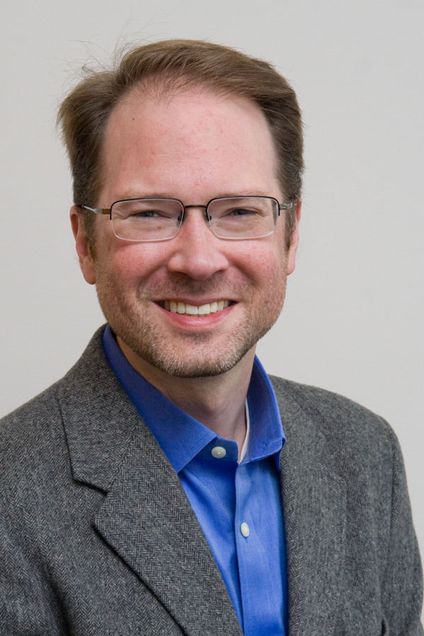
Dr. Sean Elliott recently published a paper in Nature Communications titled "A widely distributed diheme enzyme from Burkholderia that displays an atypically stable bis-Fe(IV) state."
“The work illustrates how if we look at the microbial world, enzyme continue to surprise us with how inventive they can be with chemical transformations,” says Sean Elliott. “If we can understanding the wiring, we’ll be able to re-wire these catalysts to do the reactions we need them for.”
Read the full announcement here.
Dr. Ahmad Khalil Featured in The Brink
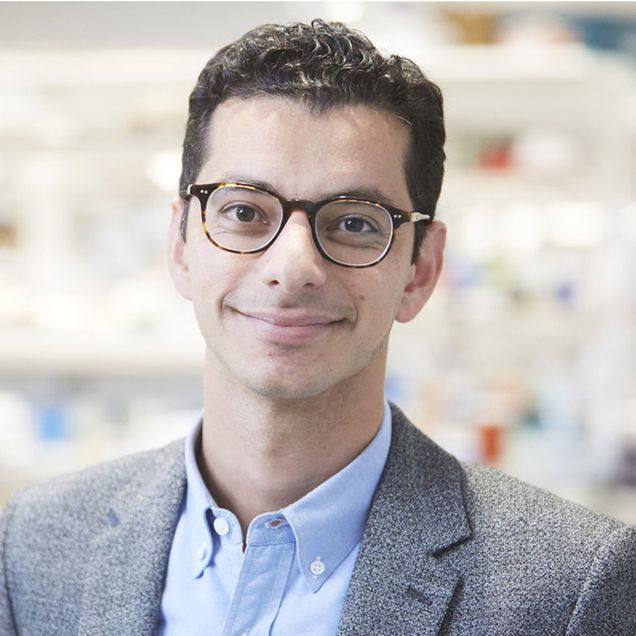
Dr. Ahmad Khalil was awarded a 2020 Vannevar Bush Faculty Fellowship—the Department of Defense’s most prestigious award for a single investigator—to explore how cells are capable of passing “memories” down to the next generation of offspring cells, a dynamic known as epigenetic memory. With his work supported by the fellowship, Khalil will discover how to manipulate epigenetic memory in cells to program self-assembling biological materials, like tissue and other cellular structures.
Read the full Brink article here.
Dr. Thomas Gilmore Awarded NSF Grant for Interdisciplinary Research
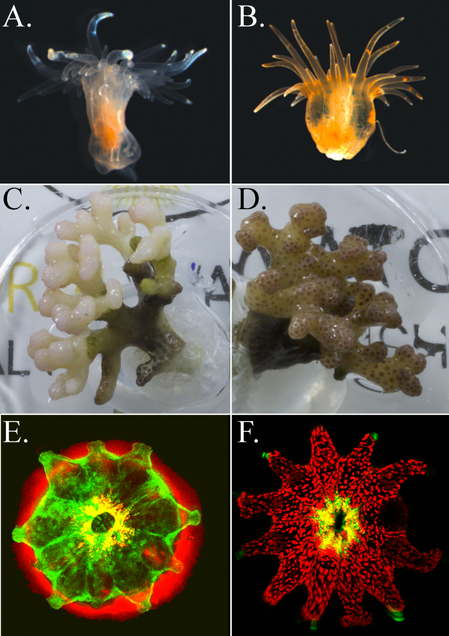
Dr. Thomas Gilmore and Dr. Sarah Davies of Biology have received a four-year National Science Foundation research grant to investigate Transcription Factors in Cnidarian Immunity, Symbiosis, and Bleaching. This interdisciplinary research combines molecular pathway analyses with marine ecology and genomics to better understand immunity and stress responses, which are often impacted by climate change, in corals and sea anemones.
Remembering Sir Hans Kornberg
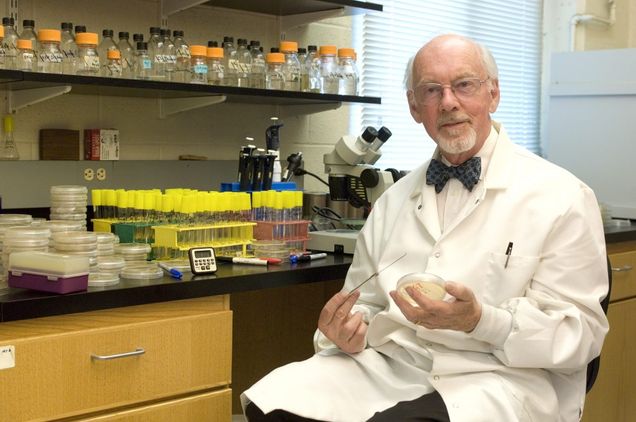
The MCBB Program mourns the loss of Sir Hans Kornberg, Professor of Biology, member of the MCBB program, and teacher of biochemistry to numerous MCBB students for over 20 years.
Born in 1928, Hans Kornberg fled to the UK from Nazi Germany at the age of 11. After finding an interest in chemistry, Dr. Kornberg studied in the Krebs Lab at the University of Sheffield and earned his PhD in Biochemistry in 1953. After working in several research labs in the US and the UK and lecturing at Oxford, Dr. Kornberg was a Professor of Biochemistry at the University of Leicester. He was the Sir William Dunn Professor of Biochemistry at the University of Cambridge, and later served as the 34th Master of Christ's College and the Deputy Vice-Chancellor for the University of Cambridge. Upon retirement in 1995, Dr. Kornberg was invited to serve as Director of the Boston University University Professors Program, which he did until the program's end in 2011. In addition to leading the UNI program, he was a Professor of Biology and he taught Biochemistry to undergraduate and graduate students at Boston University for the past 24 years.
He was the recipient of numerous awards and honors. He was appointed Fellow of the Royal Society in 1965, and was knighted in 1978. He holds 11 honorary doctorates and was a Fellow of the American Academy of Microbiology, as well as a Foreign Associate Member of the National Academy of Sciences and American Academy of Arts and Sciences. He received the UK Biochemical Society’s inaugural Colworth Medal and the Warburg Medal of the German Society for Biochemistry and Molecular Biology.
Sir Hans’ research, conducted for over 70 years, was focused on the regulation of carbohydrate transport in micro-organisms. Starting out as a bottle washer for Hans Krebs, Hans Kornberg was an author of over 250 publications. Two of his significant scientific accomplishments were the elucidation of the glyoxylate cycle and the concept and mechanisms of anaplerosis, the former being a cycle used by plants and other non-animals to enable the biosynthesis of biomass from 2-carbon compounds, and the latter being an important mechanism assuring that carbon oxidation by the Krebs cycle can continue by replenishing the intermediates that are drained by various biosynthetic reactions.
Sir Hans will be greatly missed by his colleagues and students. Not just a brilliant biochemist and skilled educator, Dr. Kornberg always had an anecdote or witty story at hand, whether about his friendship with Julie Andrews in his youth or his affinity for Latin wordplay. Visitors to the Kornberg Lab were promptly invited to take part in the most important experiment of all: making coffee! Sir Hans is remembered for his generosity, incredible wit, many stories, endless puns, and cheerful nature.
Sir Hans was the dearly loved husband of Donna and of the late Monica; cherished father of Julia, Rachel, Jonathan and Simon; and adored grandfather and great-grandfather. The Funeral Service took place December 20th at the Falmouth Jewish Congregation in East Falmouth, MA. Donations may be made in Sir Hans' memory to the Hans Kornberg travel prize at Christ's College, Cambridge, England.
Dr. Xue Han Featured in The Brink
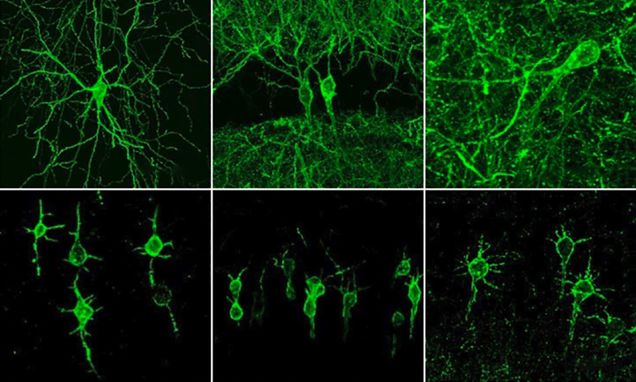
Dr. Xue Han was a co–corresponding author for "Population imaging of neural activity in awake behaving mice," recently published in Nature and featured in The Brink. The paper reports a new technique that gives the clearest picture ever of brain cell activity. Using a voltage-sensing molecule that fluorescently lights up when brain cells are electrically active, researchers at BU and MIT have shown that they can see the activity of many more individual neurons than before as they fire inside the brains of mice.
Read the full Brink article here.
Dr. Ji-Xin Cheng Receives 2020 Pittsburgh Spectroscopy Award

Dr. Ji-Xin Cheng has recently been named the recipient of the 2020 Pittsburgh Spectroscopy Award. The Spectroscopy Society of Pittsburgh (SSP), a co-founder of the Pittsburgh Conference on Analytical Chemistry and Applied Spectroscopy, is the sponsor of the annual Pittsburgh Spectroscopy Award. This award is for recognition of outstanding contributions in the field of spectroscopy, and is presented at the annual Pittsburgh Conference. The SPP aims to highlight the contributions of international leaders in the field of spectroscopy that have developed novel spectroscopies and/or demonstrated important novel applications.
Dr. Cheng was also featured in a College of Engineering news post; read the article here.
Dr. Ji-Xin Cheng’s Research Featured in BU Research
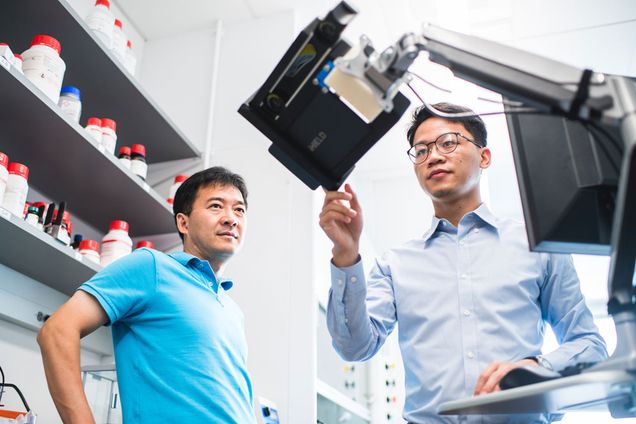
Read the full article in BU Research.
Dr. Kathleen Morgan to Receive Evans Center Excellent Research Collaborator Award
From Sargent College News:
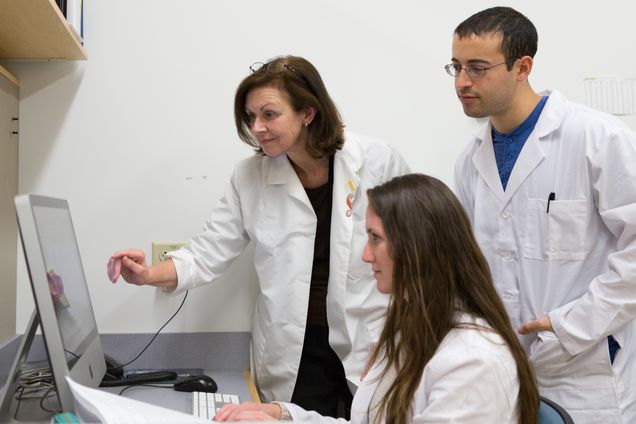
The Evans Center for Interdisciplinary Biomedical Research selected Kathleen Morgan, PhD, as a 2018 recipient of the Evans Center IBR Excellent Research Collaborator Award. Morgan is a professor in the Department of Health Sciences, programs in Human Physiology.
Read the full article: http://www.bu.edu/sargent/professor-kathleen-morgan-to-receive-evans-center-excellent-research-collaborator-award/
Dr. Allyson Sgro Receives Grant to Study One of the National Science Foundation’s Big 10 Ideas

Assistant Professor Allyson Sgro (BME) has been awarded a two-year $150,000 grant under the National Science Foundation’s (NSF) 10 Big Ideas program to elucidate how cells work together to form groups.
Read the full article in BME News.